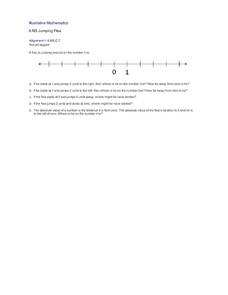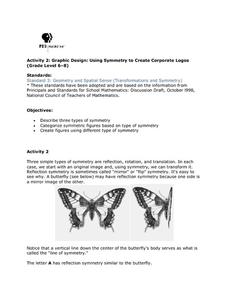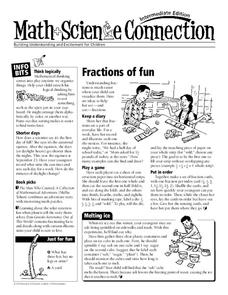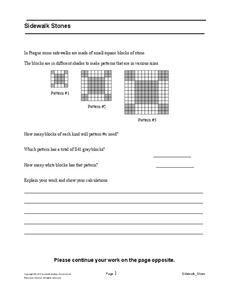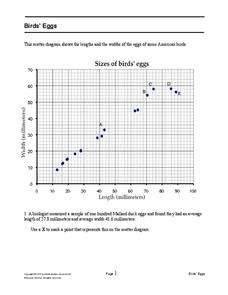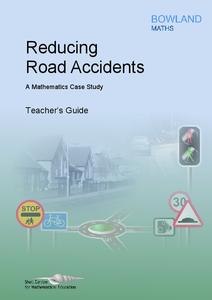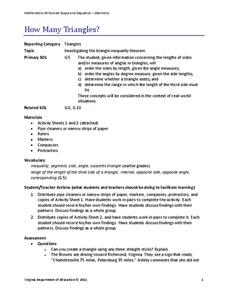Teach Engineering
Watt Meters to Measure Energy Consumption
It used watt amount of energy? This resource investigates the power usage of small household appliances. Using a watt meter, groups measure the actual wattage used by an appliance and then calculate the energy used daily.
Teach Engineering
Water Power
Young hydrologists observe a waterwheel which helps them investigate the transformations of energy that occur when the blades of a hydro-turbine are turning. They work together in pairs and pretend to be engineers who are building a new...
Illustrative Mathematics
Temperatures in degrees Fahrenheit and Celsius
Learners investigate the relationship between the Fahrenheit and Celsius temperature scales. Given two data points, they construct a linear function to describe the relationship, find the inverse of the function, and make observations...
Illustrative Mathematics
Jumping Flea
Mathematics minors consider the magnitude of a jumping flea as he hops from place to place. Through this exercise, they will investigate absolute values, as well as positive and negative rational numbers on a number line. The first page...
PBS
Using Symmetry to Create Corporate Logos
Young mathematicians investigate the use of symmetry in graphic design. After first learning about reflection, translational, and rotational symmetry, children use this new knowledge to identify symmetry in letters of the alphabet and...
Resources for Educators
Fractions of Fun
Reinforce concepts and encourage learner engagement with a collection of math games, science experiments, and cross curricular activities. In one fun resource, learners sort objects, keep a diary of everyday fractions, play a game using...
Mathematics Assessment Project
Sidewalk Stones
One block, two blocks, white blocks, gray blocks. In the high school assessment task, learners investigate patterns of sidewalk stones to develop a quadratic expression for each colored block. Young mathematicians then use the expression...
Mathematics Assessment Project
Patchwork
Sew up learning on writing rules for patterns with an assessment task that has pupils investigate the number of triangles needed for cushions of different sizes. They then use the data to generate a rule for a cushion of any size.
Mathematics Assessment Project
Sidewalk Patterns
Sidewalk patterns ... it's definitely not foursquare! Learners investigate patterns in sidewalk blocks, write an expression to represent the pattern, and then solve problems using the expressions.
Mathematics Assessment Project
Security Camera
Only you can prevent shoplifting. Class members use a given floor plan to investigate the placement of a security camera. They must incorporate knowledge of area and percents to complete the task.
Mathematics Assessment Project
Floor Pattern
You'll never look at floor tiles the same again. An assessment task prompts learners to investigate relationships between patterns involving squares and kites to determine angle measurements. They then prove whether a given quadrilateral...
Mathematics Assessment Project
Glasses
Clink, clink! Young mathematicians investigate drinking glasses composed of known solids (cones, cylinders, and hemispheres). Next, they determine the volumes of these glasses.
Mathematics Assessment Project
Bird’s Eggs
Are the length and width of birds' eggs related? Young ornathologists use a scatter plot to investigate the relationship between the length and width of eggs for Mallard ducks. They then determine the egg with the greatest...
Mathematics Assessment Project
Sorting Functions
There's no sorting hat here. A high school assessment task prompts learners to analyze different types of functions. They investigate graphs, equations, tables, and verbal rules for four different functions.
NOAA
Waves
Is it possible to outrun a tsunami? After watching a presentation that explains how waves and tsunamis occur, class members investigate the speed of tsunamis triggered by an earthquake.
Mathematics Assessment Project
Suzi's Company
Don't use an average resource ... use this one. As a middle school assessment task, learners first determine mean, median, and mode of salaries given in a frequency table. They then investigate how a change in one value changes the...
Bowland
Reducing Road Accidents
By making the following changes to the roads, we can prevent several accidents. A multiple-day lesson prompts pupils to investigate accidents in a small town. Pairs develop a proposal on what to do to help reduce the number of accidents....
Bowland
Fashionista
So trendy! Show your class how to identify trends in sales patterns using mathematics. Scholars use a software simulation to collect data on age groups, price, and sales at a fashion store. This data allows individuals to determine the...
Bowland
Water Availability
Just how scarce is water in different parts of the world? Through these water lessons, young data analysts use provided data to investigate the scarcity of water in countries of the Middle East and Africa. They use ratios and rates to...
02 x 02 Worksheets
Absolute Value Equations and Inequalities
Demonstrate the meaning of an absolute inequality using three different methods. Here, scholars explore absolute value inequalities through graphing, number line distance, and compound inequalities. Pupils complete various activities to...
Intel
Choreographing Math
Leaners investigate families of linear functions through dance. They choreograph dance moves to model nine unique linear functions of their choosing. Using their dance moves, teams create a video presentation complete with music and...
Virginia Department of Education
Similar Triangles
Pupils work in pairs to investigate what it takes to prove that two triangles are similar. They work through various shortcuts to find which are enough to show a similarity relationship between the triangles. Small groups work with the...
Virginia Department of Education
Angles in Polygons
Polygons — it's all about the angles. Groups work with dynamic geometry software to find the sum of the measures of the angles of various polygons. After finding the information for several polygons, the groups generate a formula that...
Virginia Department of Education
How Many Triangles?
Something for young mathematicians to remember: the sum of any two sides must be greater than the third. Class members investigates the Triangle Inequality Theorem to find the relationship between the sides of a triangle. At the same...





